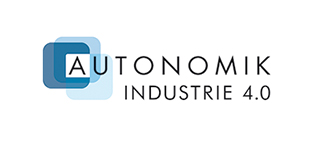Cross-cutting topics
Standardisation
Standards create a sound basis for technical procurement, they ensure the interoperability of the application, they protect the environment, systems and consumers through uniform safety standards, they are a future-enabled basis for product development and support communication among all stakeholders thanks to uniform terms and concepts.
Standardisation has a key role to play in the success of Industry 4.0 as a project for the future. Industry 4.0 calls for unprecedented integration of systems across domain borders, hierarchy borders and lifecycle phases. This is only possible with consensus-based specifications and standards. Close collaboration between research, industry and standardisation is necessary in order to create the preconditions needed for far-reaching innovation, i.e. methodological foundation and functionality, stability and investment security, practical suitability and market relevance.
Timely stabilisation of concepts through a consensus-based standardisation process during the research phase is essential if fast implementation in industrial applications is to be possible. This explains why the topic of standardisation in conjunction with Industry 4.0 and the Internet of Things and Services is the subject matter of a number of different activities:
Industry 4.0 standardisation roadmap (DKE/DIN)
Industry 4.0 platform, working group 2
DIN/DKE working group "Industry 4.0 standardisation"
Current topics
Radio technologies
Continuation of the Industry 4.0 standardisation roadmap
Presentation of the standardisation landscape
IEC/ISO: Automation systems, ICT, functional and IT security, robotics, semantics, hardware integration, etc. (see standardisation roadmap)
VDI/VDE-Gesellschaft measuring and automation systems (GMA)
Publications on the topic
Value chains
Objects, entities, components
Reference model
Global developments of specifications in forums and consortia in the world of ICT (e.g. M2M, IoT, wireless)
Many standards already exist. As developments in Industry 4.0 and AUTONOMICS progress, existing standards should be adapted, where necessary, or developed further, or new standards must be drawn up. Especially when it comes to cross-cutting and domain-spanning topics, it becomes apparent that the standards of individual domains come into contact with each other and cannot be migrated until a systematic approach in standardisation is adopted. The following steps are examples of what is needed:
Creation of a joint foundation based on a uniform system approach (e.g. through use cases, reference models)
Information about and overview presentation of the heterogeneous standardisation landscape (status quo)
Definition of an additional need for standardisation (modification, new standards, uniformity) and implementation of a corresponding work programme
Compilation and development of Industry 4.0 profiles
Implementation and testing
That's why the "AUTONOMICS for Industry 4.0" technology programme has an interest in a bidirectional exchange of information with the world of standardisation:
Receiving information about the current status and latest developments
Including developments from research projects in standardisation as quickly as possible
In this way, new ideas can directly influence the current development of standardisation. Another advantage is that the projects can supply input and support the development of standardisation. Successful standardisation provides an important tool when it comes to translating innovation from the research stage to marketable products and services. That's why from an early point in time scientific assistance, in co-operation with the projects, aims to monitor the developments taking place in the field of standardisation, to initiate its own standardisation projects and to both accompany and provide helpful support for current developments.
- Recommend this page:
- Print view
